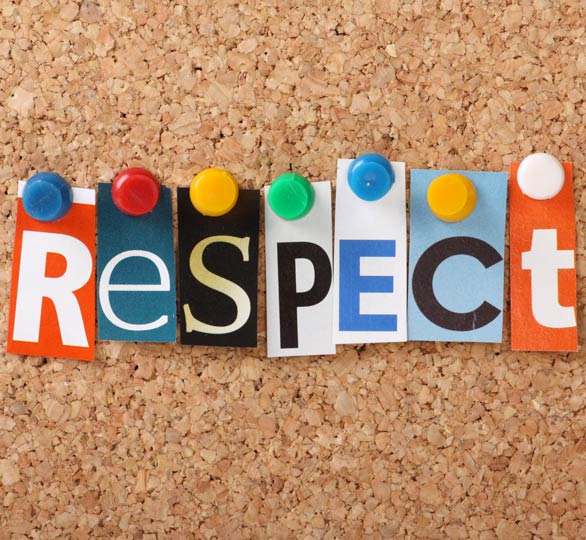For PR Success: Show Some Respect

As the Queen of soul Aretha Franklin sang 47 years ago, R-E-S-P-E-C-T is at the core of every successful relationship. From the way we treat those we care about to those we aggressively compete against, and even those we dislike, the respect that we demonstrate communicates volumes about us. The respect we expect from others is an important bellwether of how we feel about ourselves. There is no greater reflection of our personal character and that of our companies.
Respect can and should manifest itself throughout everything we do as business people. Joel Peterson, the Chairman of JetBlue Airways calls respect “the currency of trust” because of the way it is “…exchanged and circulated among people. It’s any easy concept to pay lip service to, but like any facet of behavior and attitude, respect requires focus, awareness, and practice.” (Joel Peterson, JetBlue, 2014). I agree. In working with thousands of people at all levels during my career in high tech marketing I’ve witnessed the bounties of riches that respect can reap, as well as the severe damage a dearth of respect can inflict.
Perhaps because of its relative nascence, the tech market is a little like the Wild West—adventurers are drawn to a frontier that can deliver an exciting new way of life for not only those that explore and settle it, but those outside the circle of those direct participants. Yet like the early pioneers, there can be a desire to eschew tradition and structure. Sometimes this can be a good thing. Some traditions should be tossed, like the dress tie has been in Silicon Valley. But others are evergreen and should be ingrained in everything we do. Respect falls into this class.
How should respect be manifested in your relationships with members of the press?
- Respect their professional responsibilities – Don’t expect stories and interviews from reporters that don’t cover your company’s core business or issues touched by your business.
- Respect their work – Read the articles and background documents your PR team has provided to you. Become familiar with their work, point of view, experience, and their readers. Sincerely communicate your interest and discuss mutual areas of interest.
- Respect due diligence – Provide reporters with outside sources that can verify the benefits your stakeholders have received as a result of working with your company, including investors, customers, partners, etc. Provide market analyst recommendations based on their deep knowledge of your market.
- Respect boundaries – Many reporters must adhere to strict rules about gifts, even being treated to meals and travel. Your PR pro can make you aware of these restrictions on a case by case basis.
- Respect the end product – Professional reporters write articles based on facts and analysis. Some express opinions. If the article that the reporter has written following your interview includes an inaccuracy, it is appropriate to request a correction. If however, the reporter presented information that is accurate, and research and due diligence were conducted properly, it is not appropriate to ask a reporter to change content simply because it’s not entirely to your liking. PR is not advertising where the medium and the message are controlled. It is because of reporter and publication independence that coverage of your company can be extremely beneficial.
Like any relationship, our relationships with members of the press can be interesting, exciting, and fulfilling. And as with our other relationships, they should be based on mutual respect.